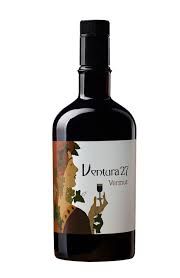22. Jun, 2022
Vermut is back
Vermut is completely back
Special bars are opened, books about vermut are written, disappeared brands come back to life and separate Vermut cards are presented: Vermut (Italian; vermouth) is back in fashion. Especially in large cities such as Madrid and Barcelona, but also in Malaga. The sweet and bitter drink, which was once subject to a dusty image, is for many the new gin tonic. From only a minor supporting role in cocktails, Vermut now plays a starring role as an aperitif par excellence. The so characteristic bitterness is an excellent appetite stimulant. The province of Malaga has a long tradition of making excellent Vermut.
Vermut is usually made from a dry base wine, fortified with extra wine alcohol, sweetened with sugar, must or sweet wine and flavored with a multitude of herbs, spices, plant and flower extracts. The first geological remains of wine vases with herb remains date from 6000 BC in modern-day Georgia. Vermut (at least an ancient variant) was also reinvented in China around 1250 BC. Later the drink is attributed to the Greek philosopher Hippocatres ('Vinum Hipocraticum') around the year 400 AD. It mainly concerned the medicinal qualities of absinthe wine especially for the healing of stomach and intestinal ailments. Similar drinks were also made in Roman and Egyptian culture. Modern history begins with Vermuts 'discovery' in 1786 by 22-year-old Italian Antonio Bendetto Carpano, in a liqueur shop in Turin.
Aromas, aromas and more aromas
Vermut is the Italian reference to the German word Wermut which is a collective name for a wide variety of herbs including wormwood (or Absinthe) and related herbs.
The basic red wine from which Vermut is made, often is an “montillado” or “pedro ximenez” for the red ones and a ´fino´ for the white ones. The red is slightly sweeter and the white has more of a lemon character. The better Vermuts are a true explosion of taste of the various flavors.
Every bodega has its secret recipe. A variety of fruits, herbs and plants are used to flavor the base wine including wormwood, gentian, chamomile, ginger, estragon, cinnamon, star anise, vanilla, sage, orange zest and lemon zest, cardamom pods and coriander seeds.
Incidentally, the term basic wine suggests that lesser quality wines are used as a 'by-product'. That is by no means true for the better Vermut.
A good Vermut has a perfect balance between sweet, bitter and sour, which ensures a persistent taste in the mouth and a long finish.
Depending on the sugar content, there are five different Vermuts: Extra Seco (extra dry): less than 30 grams of sugar per liter. Seco (dry): less than 50 grams of sugar per liter. Semi-dry: Between 50 and 90 grams of sugar per liter. Semidulce (semi-sweet): Between 90 and 130 grams of sugar per liter. Dulce (sweet): 130 grams of sugar per liter or more.
Vermut is cultural heritage of Malaga and surroundings
There are now many Vermuts on the market from basic quality to very good. Various bars and restaurants in the province have special Vermut cards with which you can choose from the wide range. Vermut is served from the bottle (the better quality), 'a granel' (basic quality sold in larger quantities often from plastic barrels) or on tap. Three examples of beautiful Vermut´s from the region are Vermut Especial from Malaga´s oldest bodega Antigua Casa de Guardia. It is made from Pedro Ximenez grapes from forty-year-old vines (base wine; vino de licor and then flavored) and aged for 48 months in large wooden barrels (to be tasted in the beautiful wine room of the bodega of the same name on the Alameda Principal in Malaga).
The drink is served with ice cubes, an orange slice and an olive (and some for some sparkling water). In Malaga it is customary to strengthen the drink even more with “un toquecillo” (literally translated, a small touch), or a small splash of gin.
Pimpillo from Bodega Malaga Virgen has three base wines (´vino de licor´) from Pedro Ximenez, Moscatel de Alejandria and Syrah and aged for 60 months in large wooden barrels. The base wines of Ventura 27 from Bodega Dimobe are Pedro Ximenez and Moscatel de Alejandria, followed by 12 months of wood aging.
Vermut is a surprisingly versatile aperitif. A drink of a thousand and one flavors. A bittersweet world to discover. Unmistakable phenomenon of the wine culture in Malaga and surroundings.

